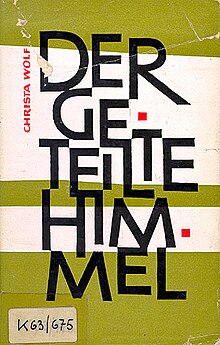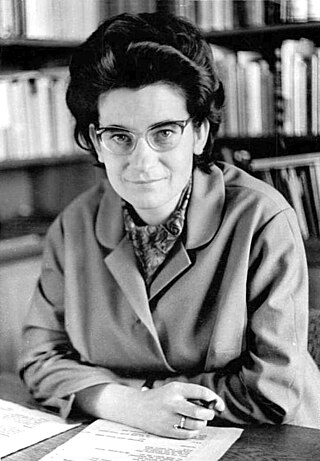
Christa Wolf was a German novelist and essayist. She is considered one of the most important writers to emerge from the former East Germany.
Inge Müller was an East German author and the second wife of East German playwright Heiner Müller.

Manfred Gerlach was a German jurist and politician, and the longtime leader of the East German Liberal Democratic Party. He served as Chairman of the Council of State and was thus head of state of East Germany from 6 December 1989 to 5 April 1990.

Konrad Wolf was an East German film director. He was the son of writer, doctor and diplomat Friedrich Wolf, and the younger brother of Stasi spymaster Markus Wolf. "Koni" was his nickname.
The National Prize of the German Democratic Republic (East Germany) (German: Nationalpreis der Deutschen Demokratischen Republik) was an award of the German Democratic Republic (GDR) given out in three different classes for scientific, artistic, and other meritorious achievement. With scientific achievements, it was often given to entire research groups rather than individual scientists.
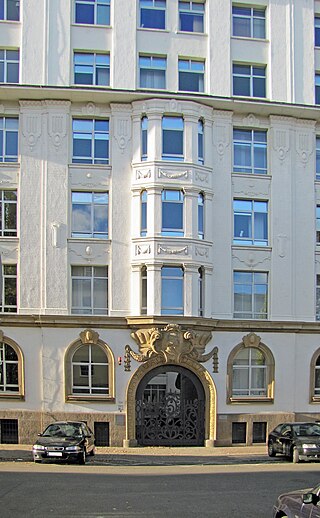
S. Fischer Verlag is a major German publishing house, which has operated as a division of Holtzbrinck Publishing Group since 1962. The publishing house was founded in 1881 by Samuel Fischer in Berlin, but is currently based in Frankfurt am Main, and is traditionally counted among the most prestigious publishing houses in the German-speaking world.
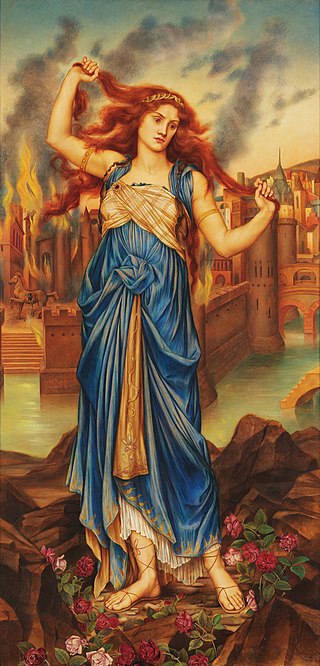
Cassandra is a 1983 novel by the German author Christa Wolf. It has since been translated into a number of languages.
East German literature is the literature produced in East Germany from the time of the Soviet occupation in 1945 until the end of the communist government in 1990. The literature of this period was heavily influenced by the concepts of socialist realism and controlled by the communist government. As a result, the literature of the German Democratic Republic was for decades dismissed as nothing more than "Boy meet Tractor literature", but its study is now considered a legitimate field. Because of its language, the literature is more accessible to western scholars and is considered to be one of the most reliable, if not the most reliable, sources about East Germany.

Daniela Dahn is a German writer, journalist and essayist. Since the reunification of Germany in 1990, Dahn has been an outspoken critic of the reunification process. Her highly personal style of writing, and her strident political opinions, have stirred controversy within Germany, but Dahn, who considered herself a dissident within East Germany before 1989, advocates for a critical journalism that continues the democratic tradition of challenging the government and policies of reunified Germany.
Anna Kaleri is a German writer and screenwriter.

Fausto Cercignani is an Italian scholar, essayist and poet.

Divided Heaven is an East German drama film directed by Konrad Wolf. It was released in 1964.
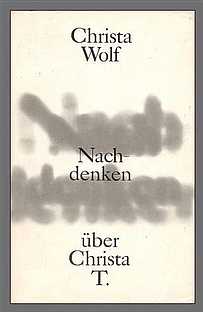
The Quest for Christa T. is a 1968 novel by German writer Christa Wolf that follows two childhood friends from the second World War into the 1960s in East Germany. Stylistically it demonstrates a subjectivist experimentation in prose characteristic of GDR literature of the 1960s. According to the 2013 exhibition "David Bowie Is," the novel was one of David Bowie's 100 favourite books.
Fritz Rudolf Fries was a German writer and translator.

Patterns of Childhood, originally published as Kindheitsmuster in German, is a novel written by Christa Wolf and published in 1976. Christa Wolf was a prominent East German novelist known for works such as Der geteilte Himmel and Kassandra.

Helga Königsdorf was an East German author and physicist.

Lutz Seiler is a German poet and novelist.
Divided Heaven may refer to:

The Akademie der Künste der DDR was the central art academy of the German Democratic Republic (DDR). It existed under different names from 1950 to 1993. Then it merged with the "Akademie der Künste Berlin (West)" to become the Academy of Arts, Berlin.
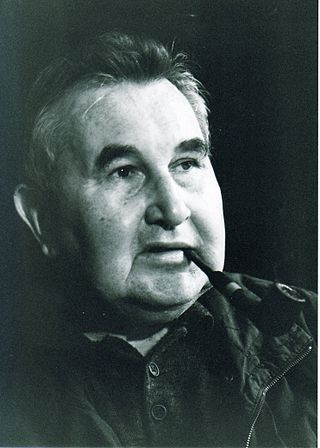
Eberhard Panitz was a German writer, screenwriter, literary editor and publicist. He wrote epic works, documentaries, audio plays and scripts for films and television. He was committed to socialist realism, and received several awards in the German Democratic Republic (GDR). After German reunification, he continued to write for leftist publishers.
